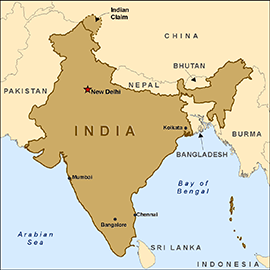Since the beginning of 2012, India has enacted significant changes with respect to the Indian investment arbitration regime. A new model Bilateral Investment Treaty (“BIT”) was approved in 2015 and will be used to renegotiate all future BIT’s signed by India. In 2016, India also terminated its existing BIT’s with 57 countries, showing India’s intent to withdraw from the Investor-State Dispute Settlement (“ISDS”) framework. Although India is not a party to the ICSID Convention, India’s behaviour is a reaction towards the ISDS framework found in its BIT’s, but not to BIT’s in themselves.
This trend flows from the idea that ISDS system is unfair and biased against States and in favour of investors from developed countries. For instance, in the case White Industries Australia Limited v. The Republic of India (UNCITRAL, 30 November 2011), the arbitral tribunal ruled against India and ordered damages on the grounds that India failed to provide the foreign investor an effective means to seek remedy under the domestic framework (violation of article 4(2) of the BIT). The decision is available below.
ISDS is negatively perceived by many emerging countries, such as India and other Latin American countries. They fear that the protection given to foreign investors by BIT’s affects the regulatory freedom of the country as part of its economic sovereignty.[2] Therefore, developing countries have established Centres (ie, the BRICS Arbitration Centre) and have gathered to create adapted, separate agreements that would allegedly take into account the country’s situation, needs and requirements, to a greater extent. India even seems to reinforce the idea behind the Calvo Doctrine, which protects foreign investors only to the extent available to domestic businesses.
In addition, some countries, such as Ecuador or Bolivia, have taken drastic measures. These countries have both resigned as Parties to the ICSID Convention (on May 2, 2007 for Bolivia, and on July 6, 2009 for Ecuador), and have modified their Constitutions to include provisions making it very difficult to enforce international arbitration.[3]
Will these changes truly protect the economic sovereignty of developing nations, or will they merely scare off foreign investors? Only time will tell.
- Aurélie Ascoli, Aceris Law SARL
[1] White Industries Australia Limited v. The Republic of India (UNCITRAL, 30 November 2011), paras. 11.4.19-11.4.20.
[2]http://swarajyamag.com/world/india-pursues-a-new-investment-arbitration-regime-to-protect-itself
[3] For instance, article 366 of the Constitution of Bolivia requires all foreign entities that are involved with the production of hydrocarbons in the nation to submit to the laws and tribunals of Bolivia, but also explicitly states that jurisdiction of such matter by an international arbitration tribunal shall not be recognized.